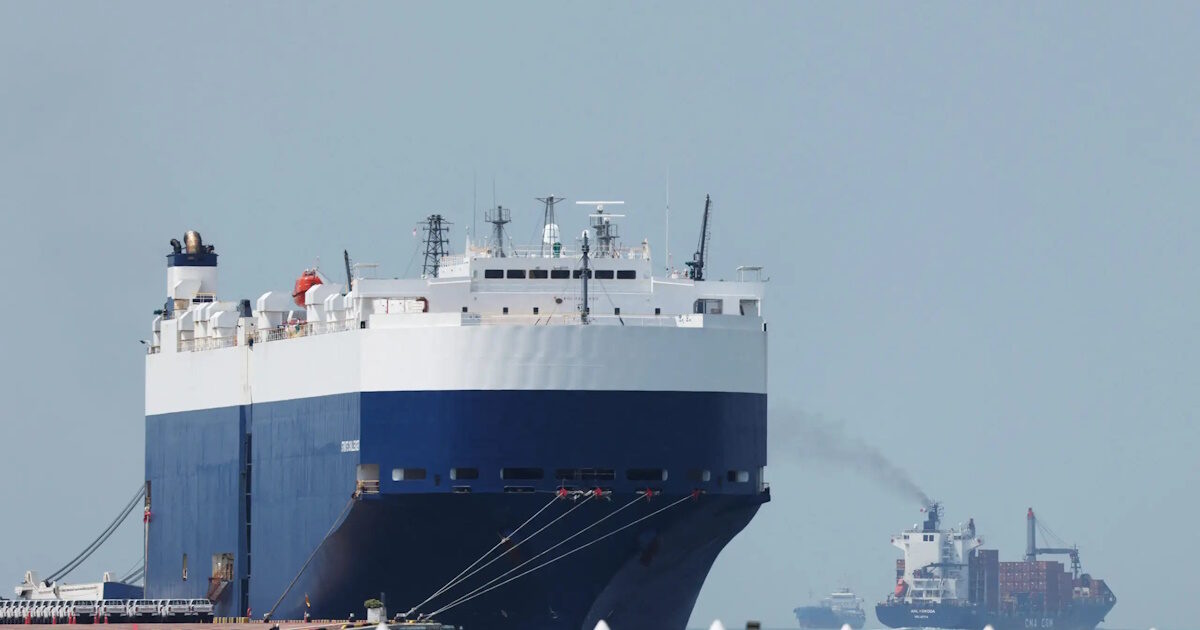The most exposed European country to the changes that Trump’s announcements bring to trade for fee in ships Made in China, Greece is highlighted.
And this is because our country depends almost exclusively on maritime freight transport -with 96.4% of its goods being transported by sea, according to Eurostat data for 2023. Therefore, it is expected to be disproportionately affected by new charges on Chinese ships compared to other European countries. Only Portugal (98.2%) and Cyprus (96.5%) have similar rates of marine dependence.
For 15 of the 22 EU countries with coastline, maritime transport was the dominant way of transporting goods, with over 70% of all loads being transported by sea to 10 of them.
At European level, the sea remains the basic freight channel, with 67.4% of all loads being carried by ships, taking into account both the quantity and the transport distance (to tunatiometers). Road transport takes second place with 25.3%, followed by railways with 5.5%, inner floats with 1.6%and airlines with just 0.2%.
As part of the support of the US shipbuilding industry and the restriction of China’s sovereignty in the world maritime sector, the Trump government announced on Thursday (17.4.2025) imposing new duties on owners or shipowners of Chinese ships, which are now obliged to pay off.
According to a statement from the United States Commercial Representative (USTR), fees to be implemented within 180 days start from $ 50 per tonne of load, with a progressive increase of $ 30 per tonne per year for the next three years. At the same time, Chinese ships will be charged $ 18 per tonne or $ 120 per container, with a corresponding annual increase.
Although milder than the original February proposals – which provided for up to $ 1.5 million per visit – the USTR plan also includes additional charges for specialized ships, such as those carrying vehicles or liquefied natural gas (LNG). LNG tankers duties will start in three years, but will continue to grow for the next two decades.
These fees will be charged to a visit to the US – not to any American port that tied – up to five times per ship a year.
Multilevels may be the impact for our country, as much of the Greek fleet consists of ships built in China due to the lower costs and the fastest tradition offered by Chinese yards.
So far, 35% of Greek -owned ships are Chinese, but this figure will reach 65%, as 400 of the 600 ships ordered in Greece are built in China.
The imposition of new fees on Chinese construction ships raises serious concerns about a possible increase in shipping costs to Greece.
